After our time in Rioja we drove through the mountainous Basque Country to the coastal town of San Sebastián (known as Donostia in Basque) which is located in the north-west of Spain on the Bay of Biscay. It is known for its beaches and world-renowned restaurants, and in particular, for its high concentration of Michelin stars. But you don’t have to eat at a Michelin star restaurant to enjoy really good food in San Sebastián.
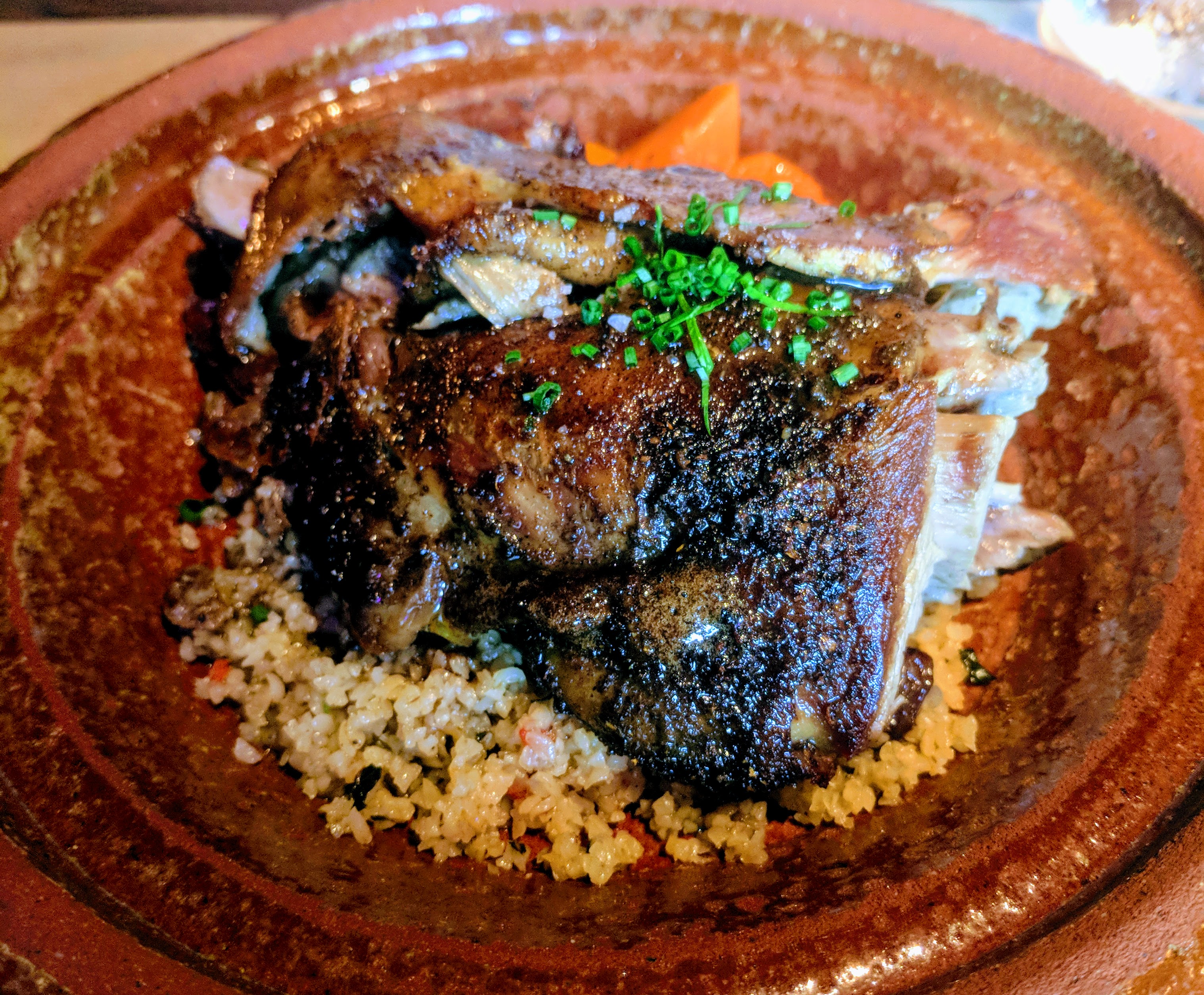
Slow cooked beef cheek from La Cuchara de San Telmo
We ate a great restaurant called La Madame which had incredible food and quality cocktails.
We also enjoyed some great tapas. The best we had was from a bar called La Cuchara de San Telmo, which was tucked behind the church in the old town. It was insane inside — it was packed with people and so loud, but was such a fun experience.
San Sebastián is also famous for its pintxos bars. Pintxos are bite-sized snacks, traditionally consisting of a small piece of bread topped with some combination of ingredients and fastened with a toothpick (“pincho” or “pintxo” meaning “spike” in Spanish and Basque, respectively). It is enjoyed with a small beer, cider or glass of wine. They usually cost about €1–4 per portion.
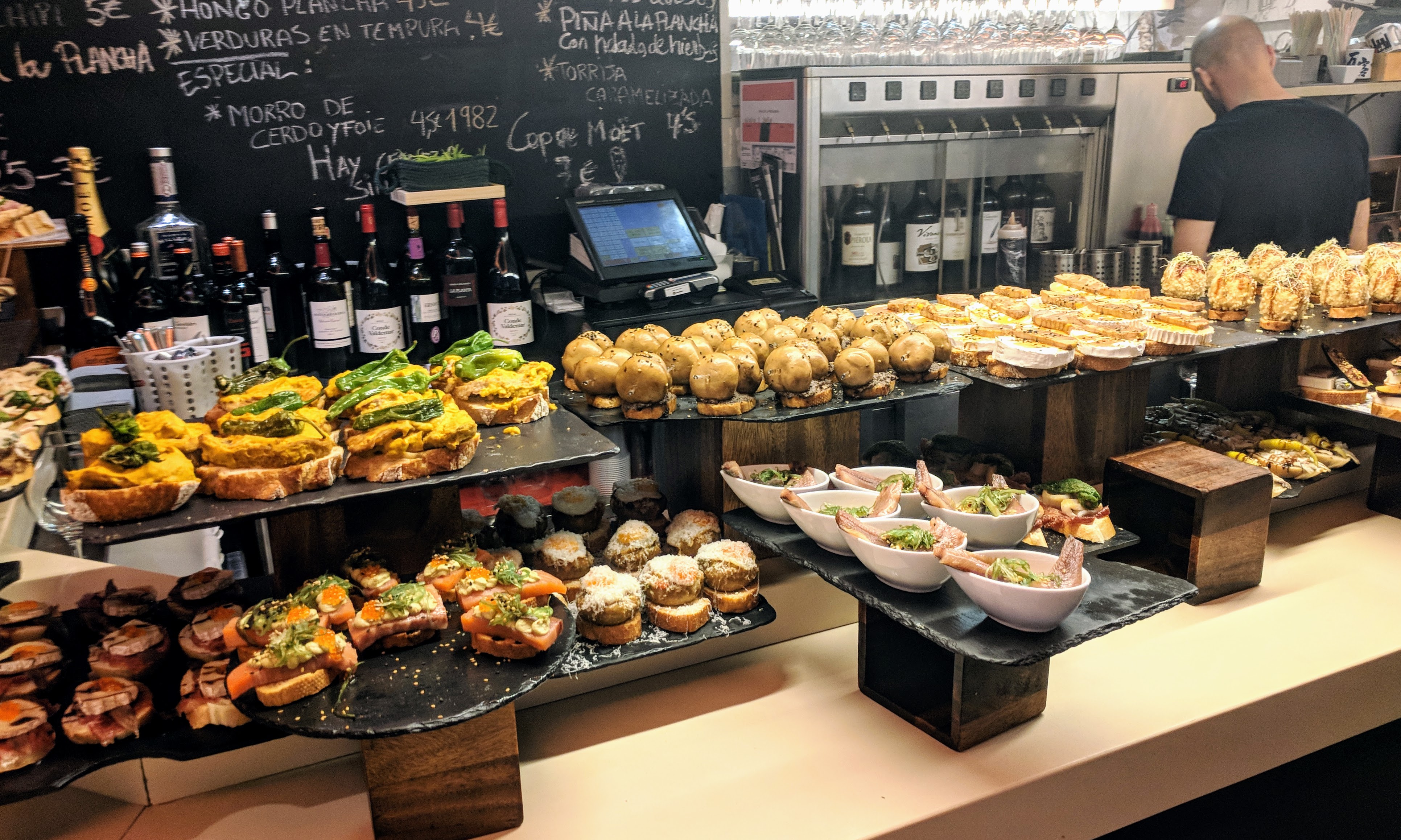
A selection of pintxos to choose from at Bar Zeruko
The locals enjoy pintxos by pintxo bar hopping. It’s quite a fun experience — you turn up to the bar, shout your order across the crowd (and hope you get what you think you ordered), and enjoy your pintxo with a small beer or wine. It’s pretty usual to have only one or two pintxos and then move on to the next bar. The old town in San Sebastián is full of great pintxo bars so it’s easy to find delicious food very cheaply.
Apart from the food, San Sebastián is a beautiful city, and the landscape is stunning. It has three beaches which are connected by a picturesque promenade that runs along the entire length of the beaches. It makes for a beautiful walk from one end to the other.
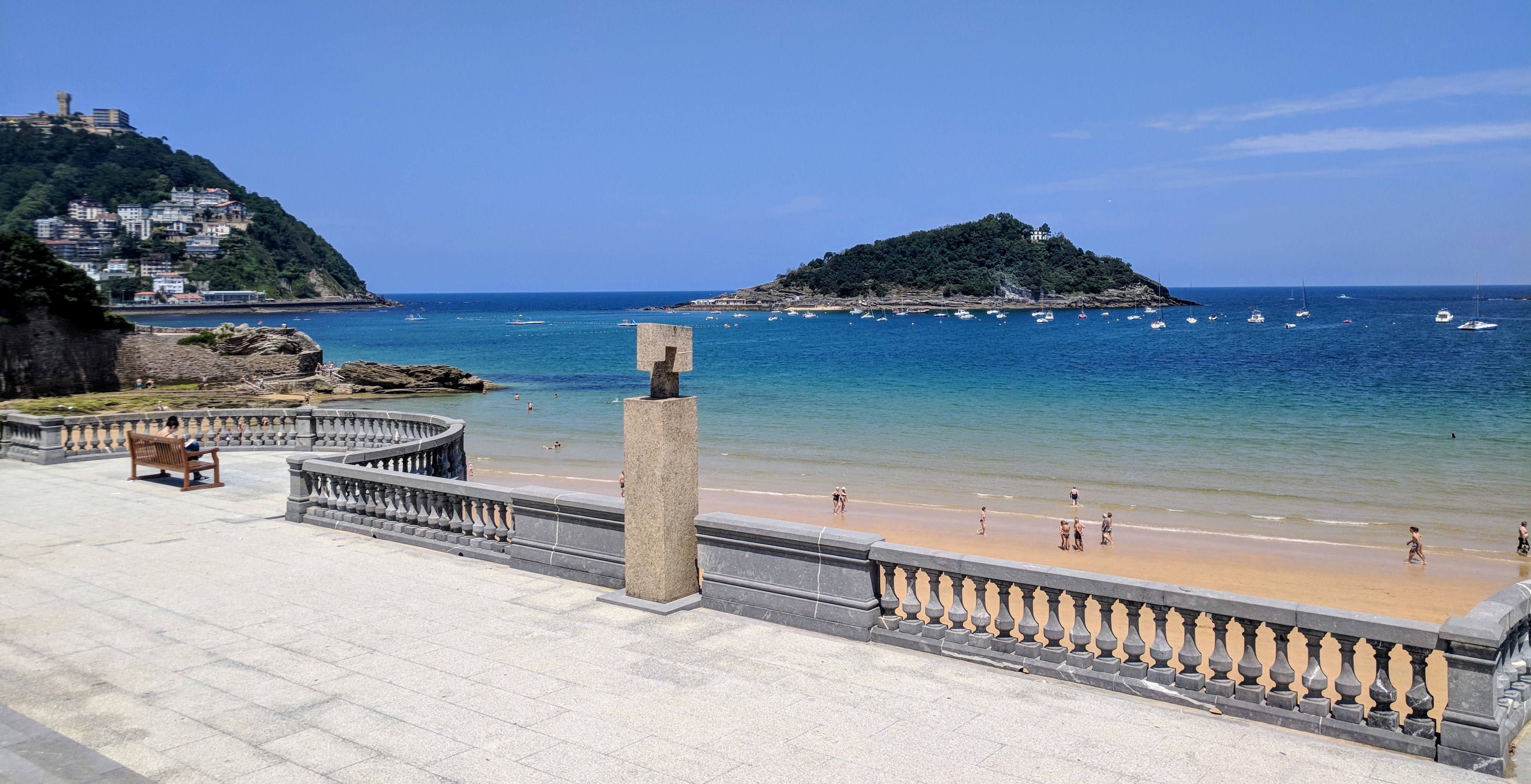
Looking down at the promenade along La Concha beach
The city is also surrounded by lush green mountains thanks to the high rainfall in the area. There is also a hill behind the old town called Urgul, which has incredible views from the top. I walked up and after the hot uphill climb was delighted to find a bar at the top serving cold water and sangria. Sitting at the top, with a sangria, overlooking the Bay was probably the highlight of the week.
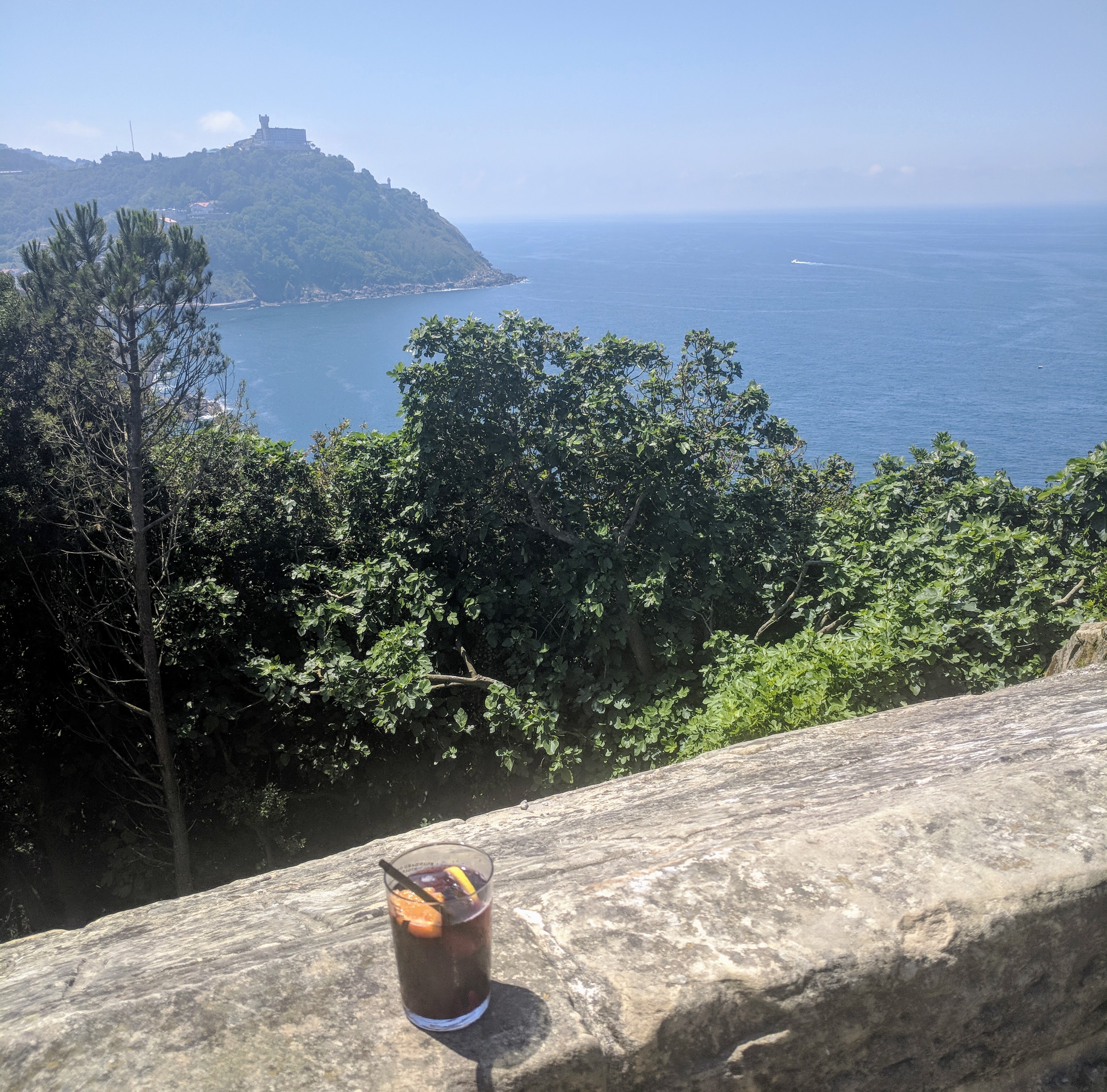
View from the top, with sangria
While Dylan was at the Airbnb working hard, I also went on a guided hike over the surrounding Mount Ulia, which I booked through Airbnb experiences. There was a small group of us — a few locals plus a couple who lived in California, but the lady was actually Romanian, which was rather serendipitous because I had been thinking about going to Romania. I told her all about our diginom experience and she told me all about Romania and how amazing it is, so needless to say, I am now planning a diginom stint in Romania.
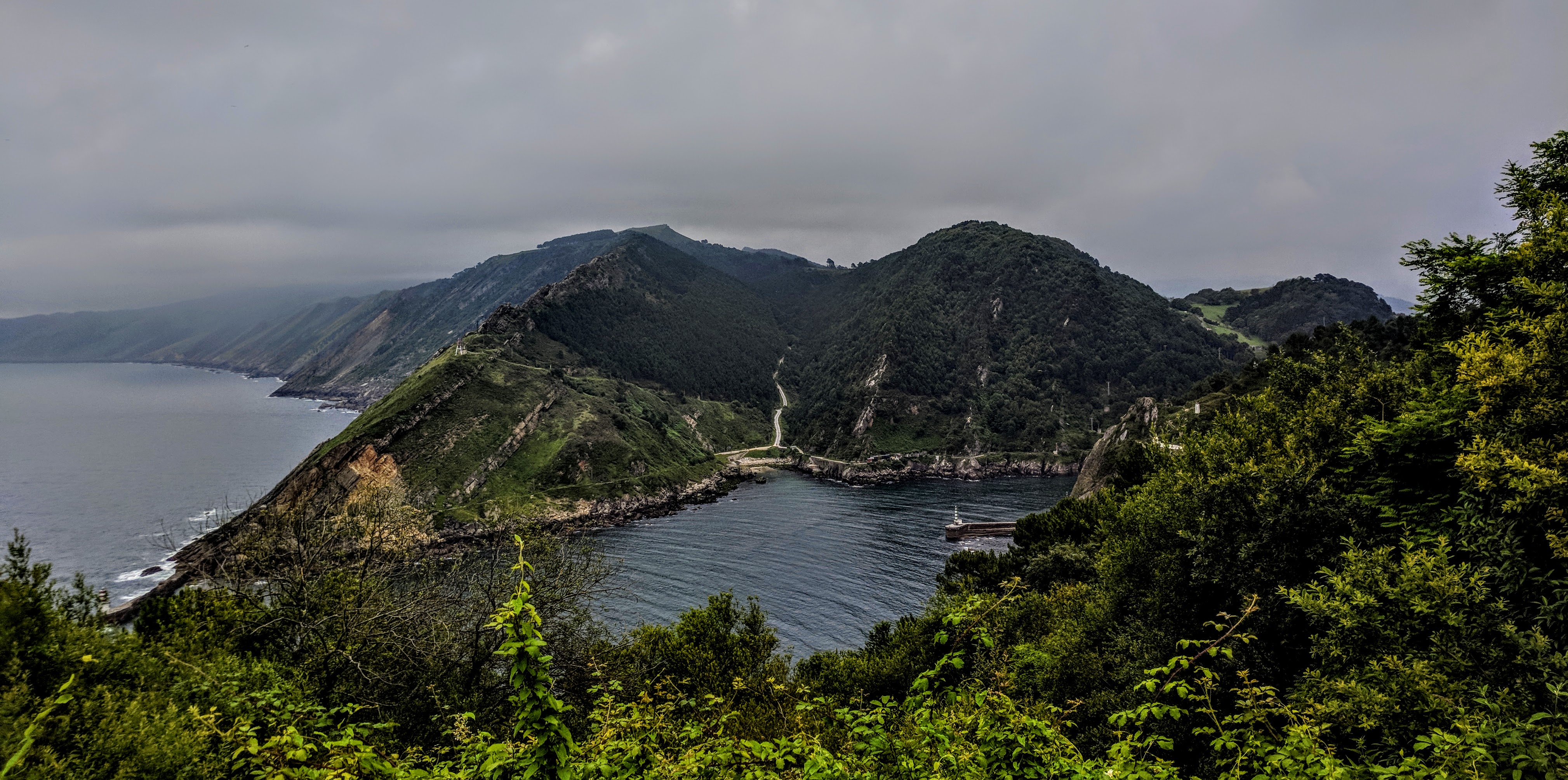
A view into the Bay of Biscay from Mount Ulia
The hike left from the centre of San Sebastián, walking up Mount Ulia and along the coastline to the small fishing town of Pasaia. It was a spectacular hike, which at times took us right to the edge of dramatic cliff edges looking out into the Bay of Biscay. The hiking path is part of the Camino de Santiago, specifically, the camino del norte route, which is said to be the oldest, most beautiful, and one of the toughest pilgrimage routes to Santiago de Compostela.
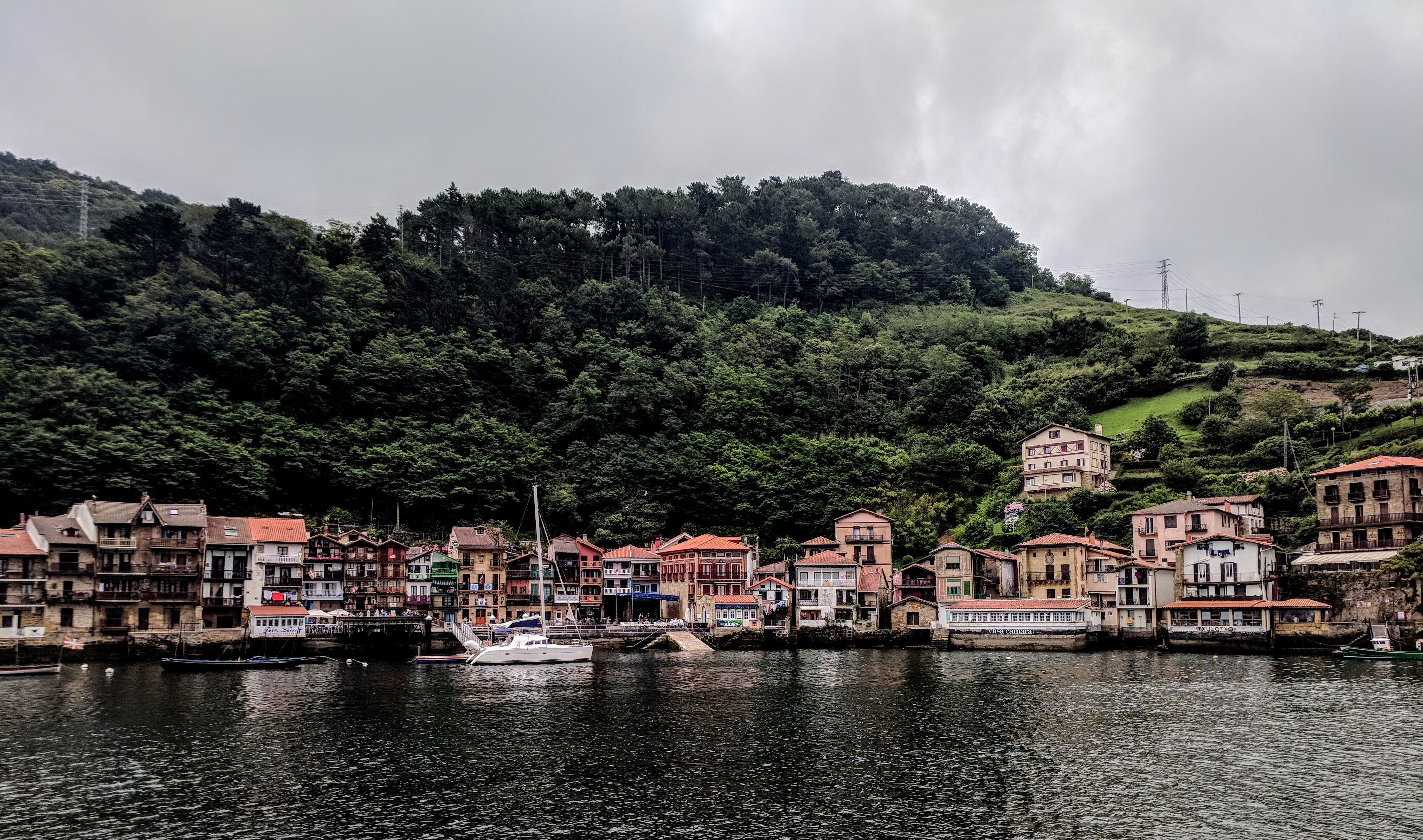
The end of the hike in the small town of Pasaia
We ended the hike with a small pintxo and a glass of local Basque cider in Pasaia. Basque cider is a very different type of cider — they call it a “natural” cider and it’s not at all sweet, in fact, it’s quite sour and is easily perishable. It’s quite an experience just to watch your cider being poured — it is poured from a bottle above head height so as to aerate the drink, and only a small amount is served per glass (about 100–200mL). They say if you let it linger in your glass for too long then the aeration gets lost and it’s not enjoyable to drink. So you have to drink quickly. The pairing of a little pintxo and a little glass of cider is perfect.
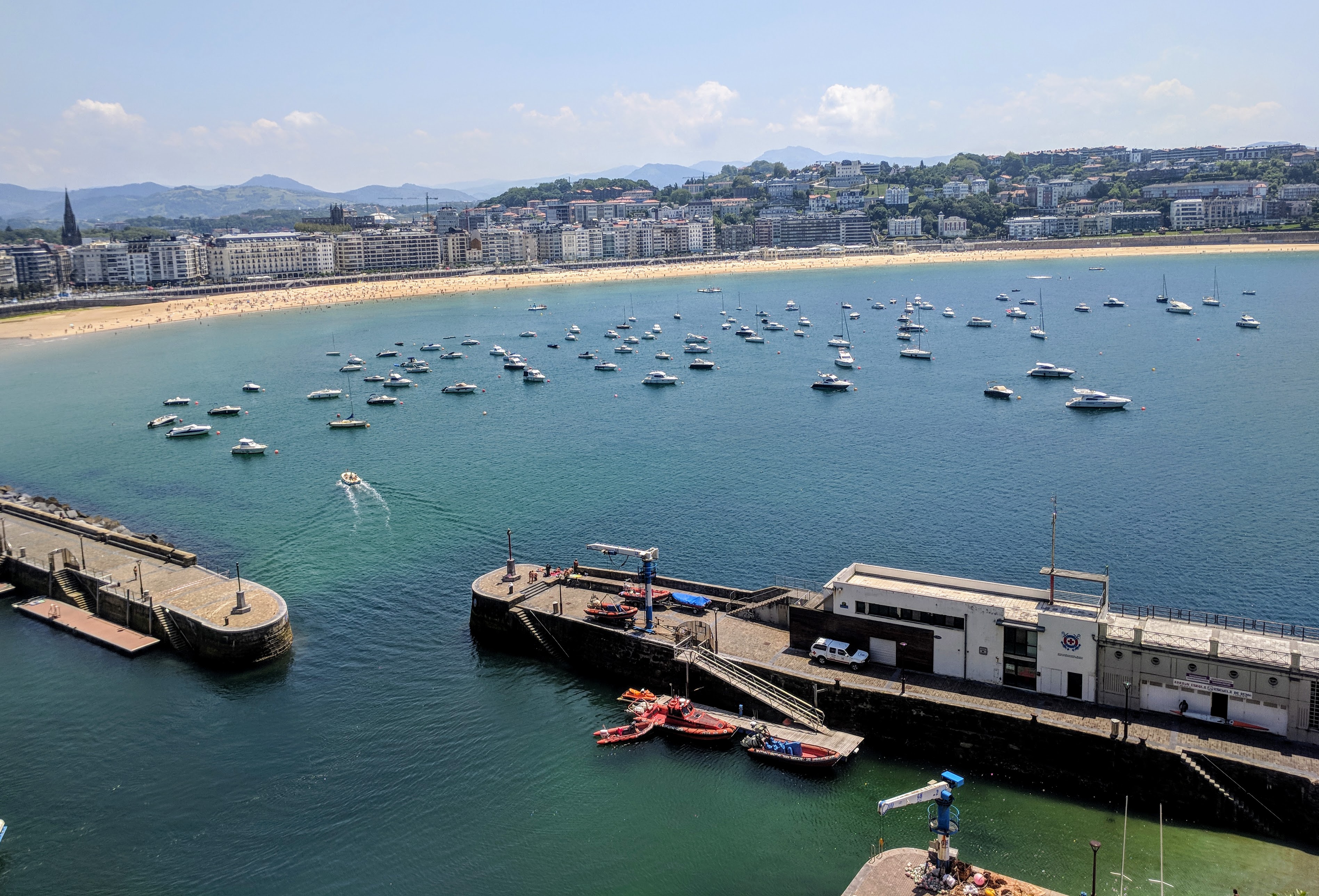
A view of La Concha beach from the top of Urgul hill
We are now back in Valencia — we have two more weeks here before heading to Barcelona for a few days and then onto the UK. This week we are meeting up with one of Dylan’s work colleagues for dinner who lives in Valencia and on the weekend we are doing a paella cooking class. Paella originated from Valencia so we figured we couldn’t leave without learning how to make authentic paella.